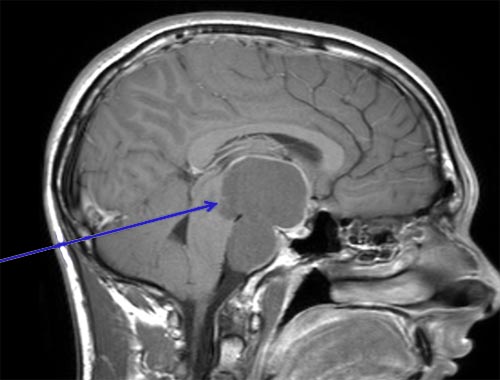Brain Tumor, Craniopharyngioma
A craniopharyngioma is a benign tumor that develops near the pituitary gland (a small endocrine gland at the base of the brain). This tumor most commonly affects children 5 - 10 years of age. Adults can sometimes be affected. Boys and girls are equally likely to develop this condition. Craniopharyngioma typically is a slow-growing tumor. Symptoms frequently develop insidiously and usually become obvious only after the tumor attains a diameter of about 3cm. The time interval between the onset of symptoms and diagnosis usually ranges from 1-2 years. The most common presenting symptoms are headache (55-86%), endocrine dysfunction (66-90%), and visual disturbances (37-68%). Headache is slowly progressive, dull, continuous, and positional; it becomes severe in most patients when endocrine symptoms become obvious. On presentation, 40% of patients have symptoms related to hypothyroidism (eg, weight gain, fatigue, cold intolerance, constipation). Almost 25% have associated signs and symptoms of adrenal failure (eg, orthostatic hypotension, hypoglycemia, hyperkalemia, cardiac arrhythmias, lethargy, confusion, anorexia, nausea and vomiting), and 20% have diabetes insipidus (eg, excessive fluid intake and urination). Most young patients present with growth failure and delayed puberty.
